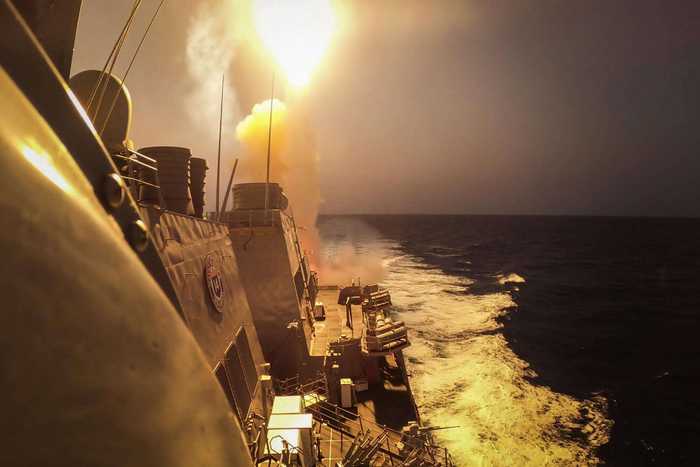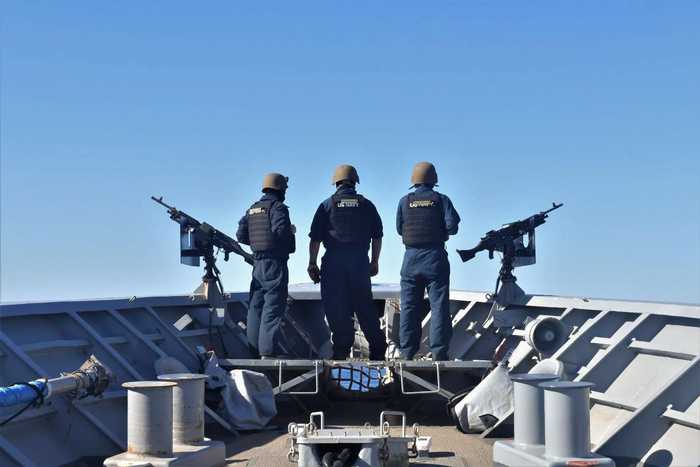Published 19:53 IST, January 5th 2024
Houthi terrorists introduce Kamikaze USVs in Red Sea, raise global maritime security alarms
In a recent incident, a USV detonated in international shipping lanes, posing a dangerous development in the ongoing conflict in the Red Sea.
- Defence
- 3 min read
Yemen: In a stark escalation of maritime threats, Houthi rebels have introduced unmanned surface vessels (USVs) to their arsenal, specifically designed for one-way attacks in the Red Sea. The recent detonation of a USV in international shipping lanes raises significant concerns, marking a dangerous development in the ongoing conflict. Vice Admiral Brad Cooper, Commander of U.S. Naval Forces Central Command (NAVCENT), confirmed the incident, stating that while there were no casualties and no ships were hit, the use of one-way attack USVs by the Houthis is alarming.
Houthi rebels, known for their use of crude drone boats, have now evolved their tactics by deploying more sophisticated and potentially devastating unmanned surface vessels. The recent incident is the first time such a USV has been employed by the Houthis since the commencement of their campaign, which they claim is in support of Palestinians amid the Israel-Hamas conflict. Vice Adm. Cooper highlighted the unknown factors surrounding the detonation, emphasizing that the USV transited about 15 miles into the waterway from Houthi-controlled territory in Yemen.
Evolution of Houthi threat and Operation Prosperity Guardian
Cooper described the USV as a "low-profile unmanned surface vessel," hinting at advancements in technology since the initial introduction of kamikaze USVs by the Houthis. The evolution of these weapons, influenced by other geopolitical conflicts, poses a significant challenge for maritime security in the Red Sea.

The international community is responding with Operation Prosperity Guardian (OPG), a defensive initiative aimed at protecting Red Sea shipping from Houthi threats. Vice Adm. Cooper emphasized that despite ongoing attacks, OPG will not involve retaliation against the Houthis. Instead, it focuses on safeguarding international shipping lanes and issuing joint warnings to the rebel group.
Strategic coalition: Five Warships, global support for OPG
Currently, five warships from the U.S., U.K., and France are actively participating in OPG, strategically positioned across the southern Red Sea. Additional support from Denmark and Greece is expected, showcasing a global commitment to addressing the evolving maritime challenges posed by Houthi tactics. These warships play a pivotal role in actively patrolling and defending merchant ships during transit, ensuring the safety of vital waterways.

Despite the defensive nature of OPG, Vice Adm. Cooper highlighted the complex geopolitical landscape, with the U.S. and 12 other nations issuing a joint warning to the Houthis, demanding a halt to attacks or face unspecified consequences. The delicate balance between defensive measures and the potential for broader consequences underscores the intricacies of managing maritime security in the Red Sea.
The introduction of USVs by the Houthis adds a new dimension to an already tense maritime situation. Operation Prosperity Guardian signifies a collaborative effort to mitigate these threats, emphasizing the importance of international cooperation in safeguarding critical waterways.
Updated 19:53 IST, January 5th 2024